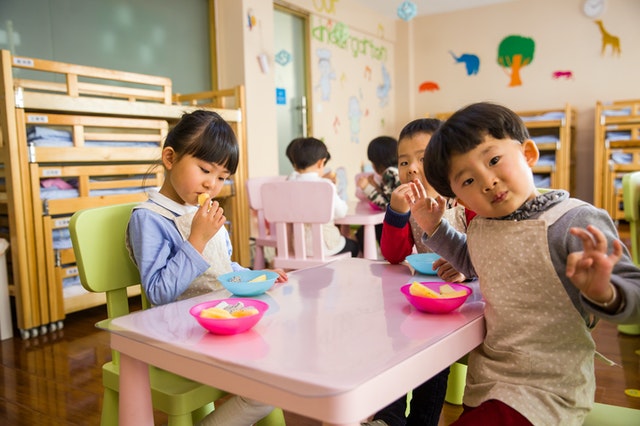Being a parent comes with its fair share of jobs and responsibilities. From the word go, you are consistently thinking about what has been done, what still needs to be done, and what might need completing; it can be exhausting, to say the very least!
While this is the case, there are additional factors to consider as a parent when your child starts school. Embarking on this journey can be daunting for parents and children alike, so we understand entirely if you are on a mission to find ways to make the upcoming process a bit easier for all involved. Firstly, understand that you are not the first to endure this and certainly won’t be the last!
On the other hand, you have found yourself in the right place at the right time. Below, we have compiled a helpful list for individuals in your circumstance, detailing some of the many things to remember when your child starts elementary school. Regardless of where you are based, read on to find out more!
It Is Going To Be An Adjustment
Embarking on this chapter in your child’s life will be something of an adjustment, not just for them either. Whether you have been the sole caregiver of your child or not, you will likely have spent a vast majority of your time in recent years in the company of your child. As a result, sending them off to school for eight hours a day will be a vast adjustment for you both, and could result in a range of emotions being experienced.
Understanding this will be an emotional time for you all, and that it will take some time to adjust to your new routine, is paramount, and will be useful in the short and long term. Taking things day by day, and being open and honest about thoughts and emotions is also worth thinking about. It might take some time to figure things out in this department, but it is easily manageable once it slots into place.
Talking to other parents about their experiences and what they might have done is also worth considering. They might have some advice or suggestions for you to implement into your routine to make this process run a bit smoother for all. It is important to remember that you should be patient with your child, no matter how frustrating their behavior might be. Their emotions and feelings will be all over the shop, and they might find it challenging to verbalize these feelings. However, regarding emotions and feelings, this takes us to the following section.
Encourage Conversations About Emotions
Understandably, when your child is of kindergarten age, they might find it challenging to express in words how they are feeling. We have all been in the position where we let our actions speak for themselves, no matter our age. While this is the case, you should remember to encourage open and honest environments, where your child feels comfortable talking about how they are feeling.
Enduring a whole day at kindergarten will be an adjustment for your child, and is sure to invoke a whole host of emotions. They will likely experience situations they have not endured previously and might be unsure how to feel or react. Talking to your child about their day when you pick them up is a good way to let them unwind, and gives you an insight into how they are settling into their new routine.
On the other hand, it is also worth recognizing the moments when your child might not be keen to talk about their day, or when they might benefit from other means of expressing their emotions. Respecting the boundaries that your child is putting in place is crucial; if they have verbally expressed they don’t want to talk about their day in case it upsets them, wait for a more appropriate time to approach the subject. At the same time, you could consider using coloring and drawing to express how they are feeling; some children thrive in these situations and find it easier to explain how they are feeling through the means of art and creativity.
Should you find your child is struggling to open up, it might be worth opening up the discourse to your child’s teacher to undercover more about what might be going on, and engaging with educators moving forward.
Connect With Your Child’s Teacher
This might be an additional task for you to juggle as a parent, but it is one that will prove itself to be worthwhile both in the short and long term. While you undoubtedly understand your child’s behavior when they are at home, your child’s teacher has an insight into the way they act while at school and on the playground. Connecting with them should you have any concerns, or simply to check in and see how your child is getting on is always worthwhile, even beyond times when you have a parent-teacher evening.
Getting involved in parent-teacher activities, including joining a parent-teacher organization (PTO), allows you to get to know the person caring for your child throughout the day. PTOs are meetings with your child’s teacher, beyond times when there are organized conferences throughout the academic year. While conferences are one-to-one meetings, a PTO allows you to see what the school is doing as a collective, alongside other parents who might be PTO volunteers. You will be able to meet regularly and assess what needs to be done to improve your child’s education.
You might not have initially thought about signing up for something like this or are worried about finding the time alongside your other responsibilities. While that might be the case, many schools have begun to utilize online meetings to stay in contact, and it eliminates the need for you to set aside time in your day to travel to the school and attend the meeting. To learn more about engaging with PTOs, check out Anchor’s article on the topic.
Implement And Uphold a Routine
Helping your child settle into kindergarten is sure to feel like quite the challenge at first; this is only natural and part of the process. Routines are thought to be beneficial to children in their key developmental years, and are something that you should think about implementing when navigating this process. You will likely have some sort of routine with your child in the years leading up to them attending school, and this is sure to be a steppingstone to the routine they will have moving forward.
Thinking about what you can do to create a healthy and manageable routine for your child will be helpful not only for them but also for you. At the same time, you should do what you can to uphold this routine; if this routine were to change at short notice, your child is likely to be confused and unsettled in some ways. Respecting the routine and slotting it in alongside your other jobs and responsibilities will make adjusting and implementing it easier for all involved. That being said, if there is to be a change to the routine, explaining this to your child should act as a buffer and manage any potential tantrums! Including your child’s input when creating the routine will bring an element of fun to the process, too, while giving you some precious bonding time with your child. Balancing the important tasks with fun ones will ensure your child enjoys the routine and that you meet minimal objections!









